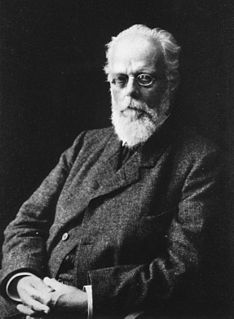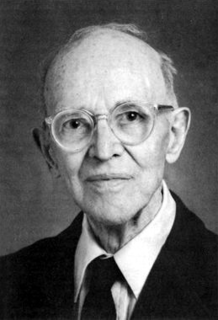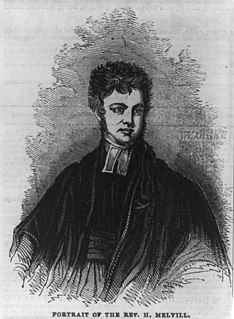A Quote by Chauncey Wright
By what criterion... can we distinguish among the numberless effects, that are also causes, and among the causes that may, for aught we can know, be also effects, - how can we distinguish which are the means and which are the ends?
Related Quotes
Man is made for science; he reasons from effects to causes, and from causes to effects; but he does not always reason without error. In reasoning, therefore, from appearances which are particular, care must be taken how we generalize; we should be cautious not to attribute to nature, laws which may perhaps be only of our own invention.
It is indeed a matter of great difficulty to discover, and effectually to distinguish, the true motions of particular bodies from the apparent; because the parts of that immovable space, in which those motions are performed, do by no means come under the observation of our senses. Yet the thing is not altogether desperate; for we have some arguments to guide us, partly from the apparent motions, which are the differences of the true motions; partly from the forces, which are the causes and effects of the true motions.
The nonphysical law allows you to use nonphysical causes to create nonphysical effects and also physical effects. This does not mean that you are not in control of what you create. On the contrary! It means that you are entirely free to create what you want, provided you are aware of how the nonphysical law of cause and effect works.
Our national fondness for celebrating the physical heroism of soldiers - the apparent readiness with which they sacrifice their lives to larger causes - eclipses the far less romantic displays of moral and intellectual fortitude that also distinguish so many of them. In turning them all into heroes, we have lost a sense of the individuality they also fight to preserve.
It is thus that the generality of mankind, whose lot is ignorance, attributes to the Divinity, not only the unusual effects which strike them, but moreover the most simple events, of which the causes are the most simple to understand by whomever is able to study them. In a word, man has always respected unknown causes, surprising effects that his ignorance kept him from unraveling. It was on this debris of nature that man raised the imaginary colossus of the Divinity.
God thus excludes the world; he is only its cause; in no sense is he effect, of himself or anything else. Pantheism (better, "pandeism," for again it is not really the theos that is described) means that God is the integral totality of ordinary cause-effects, and that there, is no super-cause independent of ordinary causes and effects.







































